Related Research Articles

George Hamilton-Gordon, 4th Earl of Aberdeen, styled Lord Haddo from 1791 to 1801, was a British statesman, diplomat and landowner, successively a Tory, Conservative and Peelite politician and specialist in foreign affairs. He served as Prime Minister from 1852 until 1855 in a coalition between the Whigs and Peelites, with Radical and Irish support. The Aberdeen ministry was filled with powerful and talented politicians, whom Aberdeen was largely unable to control and direct. Despite his efforts to avoid this happening, his ministry took Britain into the Crimean War, and fell when the war's conduct became unpopular. Subsequently, Aberdeen retired from politics.
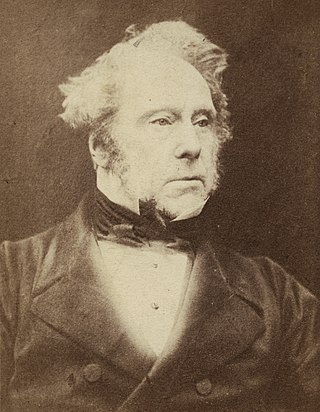
Henry John Temple, 3rd Viscount Palmerston,, known as Lord Palmerston, was a British statesman and politician who was prime minister of the United Kingdom from 1855 to 1858 and from 1859 to 1865. A member of the Liberal Party, Palmerston was the first Liberal Prime Minister, and he dominated British foreign policy from 1830 to 1865, when Britain stood at the height of its imperial power.

John Russell, 1st Earl Russell,, known by his courtesy title Lord John Russell before 1861, was a British Whig and Liberal statesman who was Prime Minister of the United Kingdom from 1846 to 1852 and again from 1865 to 1866.
Diplomatic history deals with the history of international relations between states. Diplomatic history can be different from international relations in that the former can concern itself with the foreign policy of one state while the latter deals with relations between two or more states. Diplomatic history tends to be more concerned with the history of diplomacy, but international relations concern more with current events and creating a model intended to shed explanatory light on international politics.

The French colonial empire comprised the overseas colonies, protectorates, and mandate territories that came under French rule from the 16th century onward. A distinction is generally made between the "First French colonial empire", that existed until 1814, by which time most of it had been lost or sold, and the "Second French colonial empire", which began with the conquest of Algiers in 1830. On the eve of World War I, France's colonial empire was the second largest in the world after the British Empire.
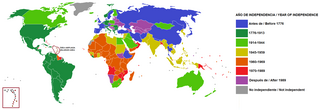
Decolonization is the undoing of colonialism, the latter being the process whereby imperial nations establish and dominate foreign territories, often overseas. The meanings and applications of the term are disputed. Some scholars of decolonization focus especially on independence movements in the colonies and the collapse of global colonial empires.
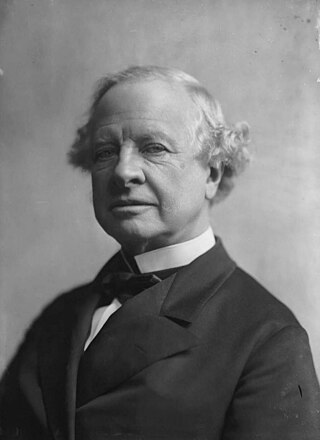
Granville George Leveson-Gower, 2nd Earl Granville,, styled Lord Leveson until 1846, was a British Liberal statesman and diplomat from the Leveson-Gower family. He is best remembered for his service as Secretary of State for Foreign Affairs.
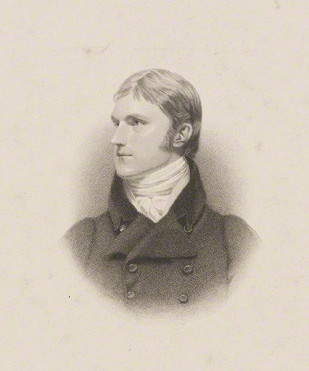
Stratford Canning, 1st Viscount Stratford de Redcliffe, was a British diplomat who became best known as the longtime British Ambassador to the Ottoman Empire. A cousin of George Canning, he served as Envoy Extraordinary and Minister-Plenipotentiary to the United States of America between 1820 and 1824 and held his first appointment as Ambassador to the Ottoman Empire between 1825 and 1828.

The decolonisation of Africa was a series of political developments in Africa that spanned from the mid-1950s to 1975, during the Cold War. Colonial governments gave way to sovereign states in a process often marred by violence, political turmoil, widespread unrest, and organised revolts. Major events in the decolonisation of Africa included the Mau Mau rebellion, the Algerian War, the Congo Crisis, the Angolan War of Independence, the Zanzibar Revolution, and the events leading to the Nigerian Civil War.
French Africa includes all the historic holdings of France on the African continent.

Antony Gerald Hopkins, is a British historian specialising in the economic history of Africa, European colonialism, and globalisation. He is Emeritus Smuts Professor of Commonwealth History at the University of Cambridge, an Emeritus Fellow of Pembroke College, Cambridge and a fellow of the British Academy.
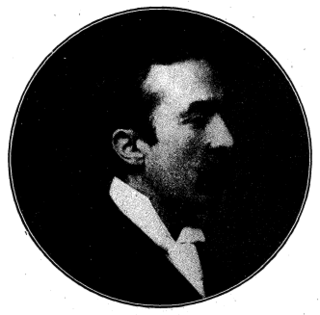
George Peabody Gooch was a British journalist, historian and Liberal Party politician. A follower of Lord Acton who was independently wealthy, he never held an academic position, but knew the work of historians of continental Europe.

The historiography of the British Empire refers to the studies, sources, critical methods and interpretations used by scholars to develop a history of the British Empire. Historians and their ideas are the main focus here; specific lands and historical dates and episodes are covered in the article on the British Empire. Scholars have long studied the Empire, looking at the causes for its formation, its relations to the French and other empires, and the kinds of people who became imperialists or anti-imperialists, together with their mindsets. The history of the breakdown of the Empire has attracted scholars of the histories of the United States, the British Raj, and the African colonies. John Darwin (2013) identifies four imperial goals: colonising, civilising, converting, and commerce.

The Affair of the Spanish Marriages was a series of intrigues between France, Spain, and Great Britain relating to the marriages of Queen Isabella II of Spain and her sister the infanta Luisa Fernanda in 1846. Britain and France took opposing roles with British foreign minister Lord Palmerston as hostile to France. However, France was successful in promoting a French husband for the queen of Spain. The affair led to a deterioration of relations between France and Britain in the final years of the July Monarchy.

The "Wind of Change" speech was an address made by British Prime Minister Harold Macmillan to the Parliament of South Africa on 3 February 1960 in Cape Town. He had spent a month in Africa in visiting a number of British colonies. When the Labour Party was in government from 1945 to 1951, it had started a process of decolonisation, but the policy had been halted or at least slowed down by the Conservative governments since 1951. Macmillan's speech signalled that the Conservative Party, which formed the British government, would no longer impede independence for many of those territories.

The Longman Companions to History is a book series, published by Longman and under the editorship of Chris Cook and John Stevenson, that provides a one volume overview of a major area of historical study. The first volumes were published in 1993. The most recent volumes was published in 2004.
The history of the foreign relations of the United Kingdom covers English, British, and United Kingdom's foreign policy from about 1500 to 2000. For the current situation since 2000 see foreign relations of the United Kingdom.
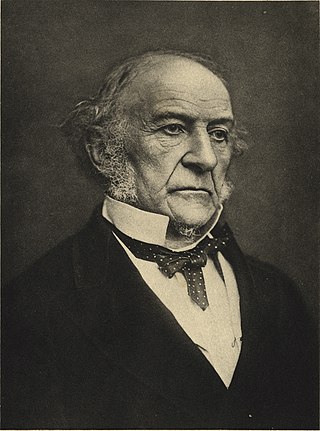
The foreign policy of William Ewart Gladstone focuses primarily on British foreign policy during the four premierships of William Ewart Gladstone. It also considers his positions as Chancellor of the Exchequer, and while leader of the Liberal opposition. He gave strong support to and usually followed the advice of his foreign ministers, Lord Clarendon, who served between 1868 and 1870, Lord Granville, who served between 1870 and 1874, and 1880 and 1885, and Lord Rosebery, who served in 1886 and between 1892 and 1894. Their policies generally sought peace as the highest foreign policy goal, and did not seek expansion of the British Empire in the way that Disraeli's did. His term saw the end of the Second Anglo-Afghan War in 1880, the First Boer War of 1880–1881 and outbreak of the war (1881–1899) against the Mahdi in Sudan.
Kenneth Bourne, FBA, FRHistS was a British historian. A specialist of 19th-century British foreign policy, he was Professor of International History at the London School of Economics from 1976 until his death. He was elected to the American Philosophical Society in 1992.

Argyll Street is a street in the Soho district of Central London. It links Great Marlborough Street to the south to Oxford Street in the north and is connected to Regent Street to the west by Little Argyll Street. Historically it was sometimes written as Argyle Street.
References
- 1 2 Cover notes. Decolonisation: The Fall of the European Empires. Blackwell, Oxford, 1985. ISBN 0631139354
- ↑ Decolonisation: The Fall of the European Empires, 2nd Edition. Wiley. Retrieved 25 October 2015.
- 1 2 3 4 Simpson, Michael (31 March 2022). "Muriel Chamberlain obituary". the Guardian. Retrieved 31 March 2022.
- ↑ Chamberlain, M. E. (1983). Lord Aberdeen: A Political Biography. Addison-Wesley Educational Publishers Inc. p. 602. ISBN 978-0582504622.